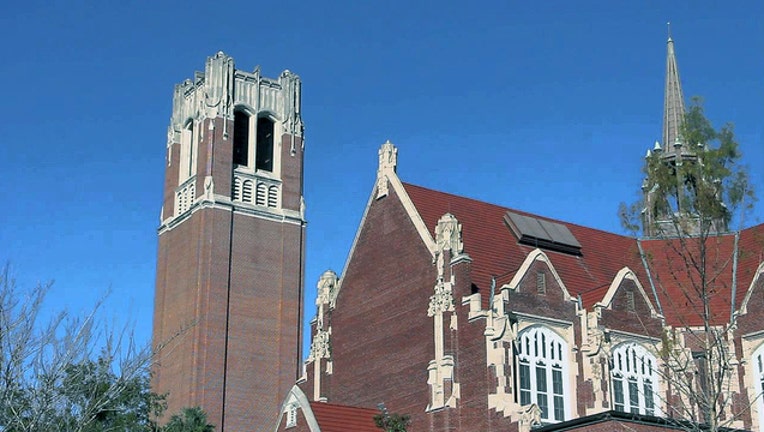House revives controversial college surveys

Century Tower at the University of Florida campus in Gainesville, Florida. [Photo courtesy: UF]
TALLAHASSEE, Fla. - A controversial proposal that would require state colleges and universities to survey students and faculty members about their viewpoints was approved by a House panel Thursday, just months after the Senate rejected the idea.
During the final hours of the 2019 legislative session, Senate Appropriations Chairman Rob Bradley, R-Fleming Island, warned senators the so-called intellectual freedom survey would “keep coming up again” and urged the Senate to block it from passing every time.
While Rep. Ray Rodrigues knows the proposal will likely struggle in the Senate, he has resurrected it ahead of the 2020 legislative session, which starts Jan. 14.
The Estero Republican said it is important to test whether people at colleges and universities feel free to “express their beliefs and viewpoints on campus and in the classroom.”
“The statement we are making here is that we don’t know, but we should know if there is intellectual diversity, which is why this is in the bill,” Rodrigues told the House Higher Education & Career Readiness Subcommittee on Thursday.
The House panel approved a wide-ranging higher education bill (HB 613), sponsored by Rodrigues, that includes the survey requirement. The measure would have to clear two more House panels before it could go before the full House, and a Senate version had not been filed as of Thursday.
Rep. Jennifer Webb, D-Gulfport, asked Rodrigues if he has talked to senators about the issue to see if there is more support for the survey going into the 2020 session.
“That is actually a loaded question. I would say depending on which senators you speak to,” Rodrigues said. “Ultimately, I believe this will be something that will have to be negotiated.”
Under Rodrigues’ proposal, the State Board of Education and the university system’s Board of Governors would have to oversee surveys each year that would be “objective, non-partisan and statistically valid.”
However, questions remain about the logistics of the surveys, as well as whether there would be repercussions for students and faculty members who refuse to share their viewpoints.
“Who would create the survey? How would the information be used? Who would evaluate it? Are there metrics we are looking to meet? There are no answers,” Florida State University professor Matthew Lata said Thursday when addressing the House panel.
Lata questioned whether the results of the survey could impact hiring practices at colleges and universities.
“If the results of the survey were not to the Legislature’s liking, would faculty be hired and fired based on their political beliefs, to change and adjust the political balance?” Lata asked.
Rodrigues defended the survey from that line of questioning.
“If you look at faculty unions across the state, they embrace diversity in every area except intellectual diversity. Why is that?” Rodrigues said.
Rep. Carlos Guillermo Smith, D-Orlando, pushed back against Rodrigues suggestion.
“Many Republican leaders have an attitude about our state university system, which is that they are a series of liberal institutions that discourage conservative thought. That is not true,” Smith said.
If Rodrigues’ bill gets approval from the Legislature, the state college and university systems would begin surveying students and faculty on Sept. 1, 2021.

